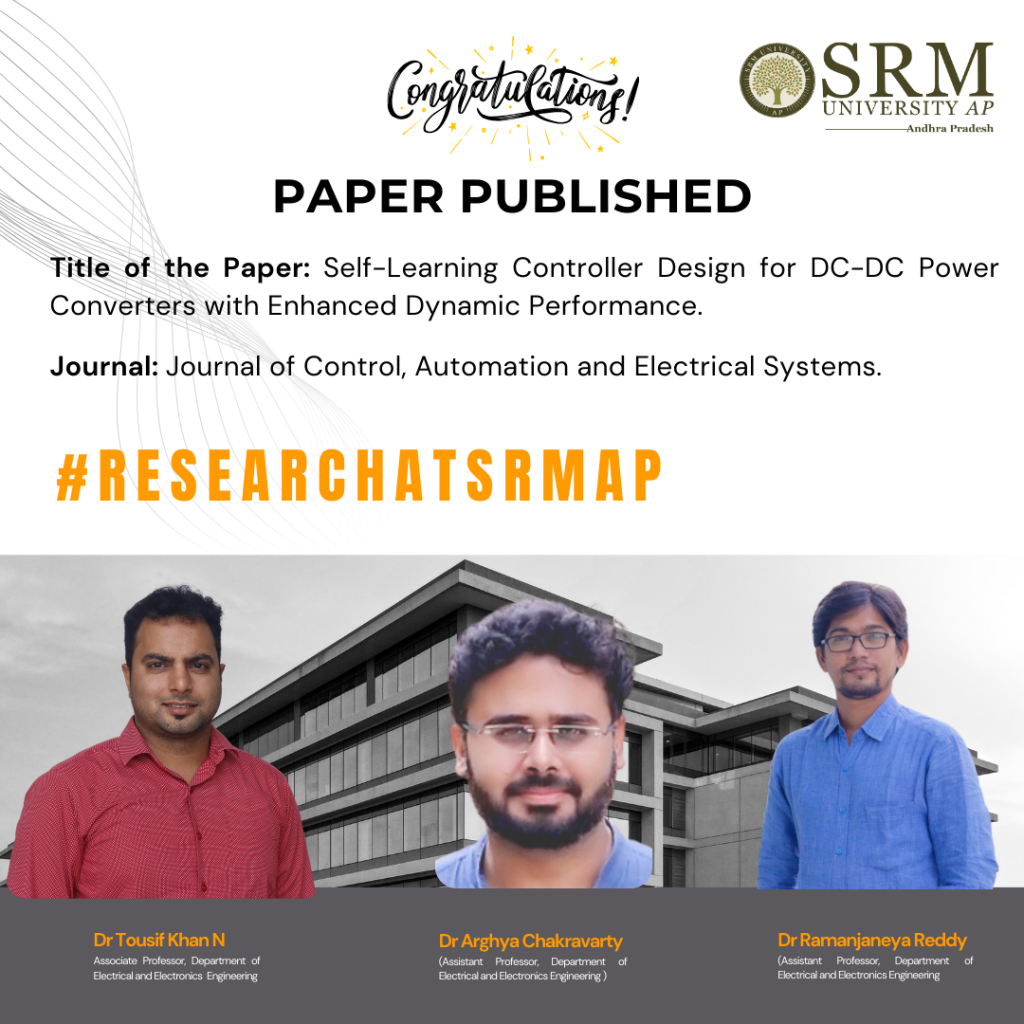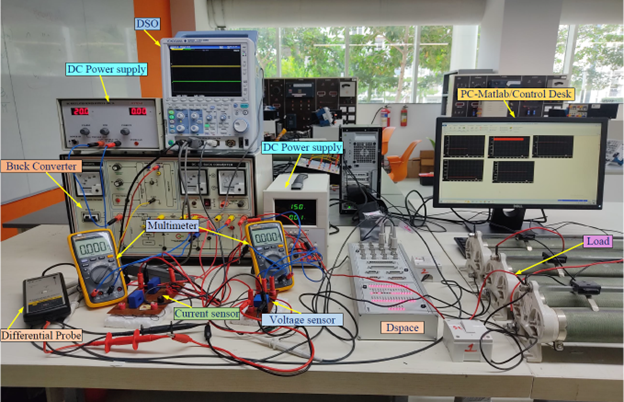
It is with great pleasure that we announce the publication of a research paper titled “Self-Learning Controller Design for DC-DC Power Converters with Enhanced Dynamic Performance,” jointly authored by Dr Tousif Khan N, Associate Professor, Department of Electrical and Electronics Engineering, and Dr Ramanjaneya Reddy & Dr Arghya Chakravarty, Assistant Professors, Department of Electrical and Electronics Engineering. The research paper introduces a novel self-learning control for precise output voltage tracking in DC-DC buck power converters.
Abstract:
This article introduces a self-learning robust control approach for accurate output voltage tracking in DC-DC buck power converters, focusing on scenarios with high precision requirements and significant load uncertainties. The method employs a simple online neural network to swiftly estimate unexpected load changes and disturbances across a wide range. Operating within a backstepping framework, the controller utilises neural network-learned uncertainties to enhance stability and improve dynamic and steady-state performance of both output voltage and inductor current. Extensive numerical simulations and practical experiments on a laboratory prototype demonstrate substantial enhancements in dynamic performance with a 94% reduction in settling time and precise steady-state tracking. The reliability of the proposed controller is further supported by the consistency between computational and experimental outcomes, showcasing its potential for real-world applications.
Practical implementations:
The proposed controller can be implemented/used for robotics applications, industrial processes, and medical equipment where precise control is needed.
Future research plans:
The following are the potential future directions of the proposed work;
(i) Design and development of the proposed self-learning neural network-based control for DC-DC buck converter systems with real-time DC sources, such as solar PV and fuel cells, experiencing highly intermittent input voltage changes.
(ii) Incorporating inductor current constraints and output voltage limitations into the proposed controller would also be an avenue worth exploring.
We congratulate the professors for their valuable contribution and look forward to future breakthroughs in this area.


